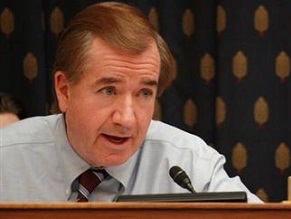|
World Jewish News

Republican Ed Royce from California, chairman of the House Foreign Affairs Committee, warned that the deal does not meet the standards necessary to protect the United States and its allies.
|
Deal with Iran: White House tries to reassure Israel as several Congressmen express skepticism
25.11.2013, Israel and the World The White House has tried to reassure Israel that its fear that the deal reached by the world powers with Iran on its nuclear programme would leave it vulnerable was unfounded.
Late Saturday, President Barack Obama admitted huge challenges remain and said Iran's promises will be put to the test over the next six months.
"As we go forward, the resolve of the United States will remain firm, as will our commitment to our friends and allies - particularly Israel and our Gulf partners, who have good reason to be skeptical about Iran's intentions," he said.
Emphasizing the United States' commitment to Israel as well as his personal relationship with Netanyahu, US Secretary of State John Kerry said in Geneva on Sunday that the two allies continue to share the same strategy and the United States will not tolerate a nuclear Iran threatening Israel.
In a press conference, Kerry said the agreement could not have been reached without the Iranians' decision to come to the negotiating table. He said the next phase of talks, while even more difficult will also be more important. "If this first step leads to what is our ultimate goal – which is a comprehensive agreement – that will make the world safer," he said.
The deal stipulates that Iran will commit to halt uranium enrichment above 5 percent and also to neutralize its stockpile of near-20 percent uranium. Tehran has also committed to halt progress on its enrichment capacity. Iran will also halt work at its plutonium reactor and provide access to nuclear inspectors.
In exchange, the United States and its allies have agreed to ease economic sanctions against Iran and Tehran will be given access to a portion of the revenue that the country has been denied through these sanctions. No new sanctions will be imposed.
But the Obama administration is facing oppositioon to a deal within the Congress. Reaction poured in early Sunday and appeared to be divided along party lines.
Republican Ed Royce from California, chairman of the House Foreign Affairs Committee, warned that the deal does not meet the standards necessary to protect the United States and its allies.
"Instead of rolling back Iran’s program, Tehran would be able to keep the key elements of its nuclear weapons-making capability. Yet we are the ones doing the dismantling – relieving Iran of the sanctions pressure built up over years," Royce said in a statement.
House Majority Leader, Republican Eric Cantor from Virginia said he found it "troubling" that the agreement "still permits the Iranians to continue enriching.""Iran's long history of noncompliance with the U.N. Security Council is well known, as is its use of secret facilities to pursue its nuclear program," Cantor added.
Republican Senator from Florida Marco Rubio warned that the deal sets a bad precedent.
"This agreement shows other rogue states that wish to go nuclear that you can obfuscate, cheat, and lie for a decade, and eventually the United States will tire and drop key demands," he said.
EJP
|
|
